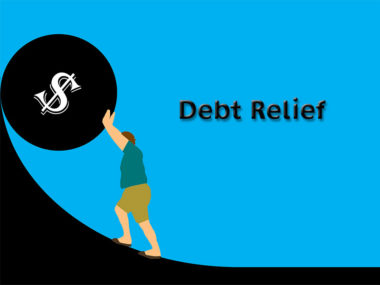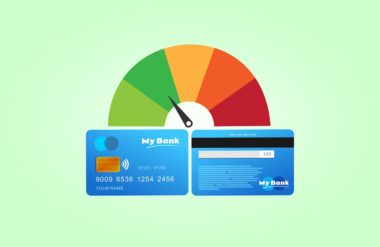The total student loan debt in the United States is $1.47 trillion. Grants and scholarships help many students offset the cost of higher education, but the debt they’re left with upon graduation can be crippling to their financial situation. By extension, the mounting debt of college graduates impacts the economy as a whole, with graduates putting off things like marriage and buying a home.
Student debt has short- and long-term effects on young Americans’ livelihoods. Fortunately, there are ways for these people to pay less on their student loans each month and carry on with their lives.
Table of Contents
Determine if You Qualify for Deferment or Forbearance
Deferment or forbearance allows you to postpone or temporarily reduce your student loan payments if you qualify.
Deferment allows qualified individuals to stop making payments toward their federal student loans for a one-year period and can be renewed every year for a maximum term of three years. In some cases, the borrower is not responsible for paying the interest accrued during deferment. To be eligible for deferment, you must meet certain guidelines.
You are eligible for loan deferment if you:
- Are enrolled at least half-time at an eligible college.
- Receiving cancer treatment (or for six months following cancer treatment).
- Enrolled in an approved rehabilitation program.
- Unemployed or unable to find full-time work.
- Experiencing economic hardship.
- Are on active duty in the military.
Forbearance, on the other hand, accrues interest that the borrower is responsible for paying back. Like deferment, it lasts for a period of one year, but with no limit on how many times you can renew the forbearance.
There are two types of forbearance: general and mandatory. A general forbearance can be requested if you are temporarily unable to make monthly payments toward your student loan balance. Reasons for this might include financial hardship, medical expenses, and changes in your employment status.
Mandatory forbearance has different requirements. You may be eligible for a mandatory forbearance if:
- You are participating in an approved medical or dental internship or residency.
- Your loan payments are 20% more than your gross monthly income.
- You are serving in AmeriCorps.
- You are a teacher and qualify for teacher loan forgiveness.
- You qualify for partial repayment under the U.S. Department of Defense Student Loan Repayment Program.
- You are a member of the National Guard but are not eligible for a military deferment.
Use a Repayment Plan
Despite the mounting student debt across the nation, there are many types of repayment plans available. Below, we break down some of the most common repayment plans that can lower what you owe on your student loan bills each month.
- Extended: College graduates with more than $30,000 in federal direct loans can apply for an extended repayment plan, which allows you to pay with fixed or graduated payments over the course of 25 years.
- Graduated: This plan is for those who earn too much to qualify for an income-based repayment plan but still struggle with monthly payments. Graduated repayment plans start with low monthly payments that gradually increase every two years. These plans are typically paid off in 10 years.
- Income-based: This repayment option is based on your monthly income. A percentage of your discretionary income, which is the difference between your adjusted gross income and 150% of the annual poverty line for your family size, calculates what you owe each month.
It’s important to note that while your payments will be lower each month, the total amount of interest you pay on the loan will be significantly more with these types of repayment plans.
Apply for an Assistance Program
There are many types of assistance programs available to help people pay off their student loans. Assistance is offered through federal, state, and military programs. Additionally, those seeking vocational training can obtain loan assistance, as the government is eager to train professionals in all vocations.
You can also find loan assistance in other places, such as your job. Your employer may even offer a loan repayment incentive program. To apply for the loan assistance program that’s right for you, conduct some research to see which programs you qualify for.
Earn Student Loan Forgiveness
Some programs exist that will result in complete or partial forgiveness of your student loans. Typically these are tied to your occupation, such as nursing, being a teacher, or working for a non-profit. Other circumstances, like financial hardship or disability discharge, can make an individual eligible for student loan forgiveness.
Make Consistent On-Time Payments
To pay less on your student loans each month, do your best to pay on time. Making payments on-time month over month will help you to avoid late fees that can add substantially to the cost of your student loans. To ensure you never miss a payment, enroll in an auto-pay feature that allows you to schedule payments each month.
Use Old-Fashioned Budgeting
Before you enroll in a payment plan that lessens what you owe each month, create a budget that outlines how much you can realistically afford to pay. This may seem obvious, but ensuring you are budgeting properly and able to make your payments on time will help prevent additional fees.
Refinance Your Loans
Refinancing your loans can reduce your interest rate, but your ability to refinance depends on factors like the type of loans you have (federal or private). Furthermore, if you have private student loans, refinancing will only be beneficial if you have a good credit score. It can also cause you to lose access to repayment assistance programs.
Ultimately, refinancing has a number of drawbacks and is better approached as a long-term rather than a short-term plan. Companies like Credible and SoFi can help you consolidate and refinance your loans for a lower monthly payment.
Image Source: https://depositphotos.com/





